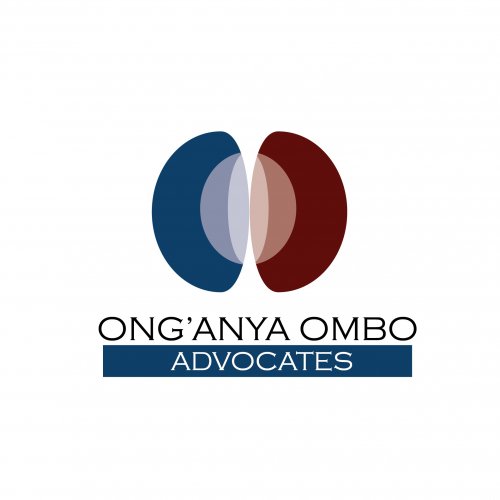Best Renewable & Alternative Energy Lawyers in Nairobi
Share your needs with us, get contacted by law firms.
Free. Takes 2 min.
List of the best lawyers in Nairobi, Kenya
Legal guides written by Adroit Law LLP:
- Kenya Launches Digital Nomad Visa: A Gateway for Remote Workers
- Navigating the Payment System License Maze in Kenya
- Navigating the Complexities of Mining Licenses and Permits in Kenya: A Look into Artisanal and Large-Scale Operations
About Renewable & Alternative Energy Law in Nairobi, Kenya
Renewable and alternative energy law in Nairobi, Kenya focuses on the policies, regulations, and frameworks that govern the development, use, and management of sustainable energy sources. These sources include solar, wind, geothermal, biomass, and small hydro power. With growing urbanization and the need to reduce reliance on traditional fossil fuels, Nairobi has become a hub for green energy innovation and investment. The legal landscape seeks to encourage sustainable practices, protect the environment, and facilitate both local and foreign participation in Kenya’s renewable energy sector.
Why You May Need a Lawyer
Engaging a lawyer specializing in renewable and alternative energy can be crucial for a variety of reasons. Common situations where legal expertise is needed include:
- Negotiating contracts for the acquisition or leasing of land for energy projects.
- Securing permits, licenses, and regulatory approvals from relevant authorities.
- Navigating tax incentives and government programs linked to renewable energy initiatives.
- Structuring joint ventures or partnerships with local or international investors.
- Handling disputes with contractors, suppliers, or government agencies.
- Ensuring environmental compliance and conducting due diligence for project financing.
- Protecting intellectual property related to new energy technologies.
Local Laws Overview
Kenya has established a robust legal and regulatory framework to support renewable and alternative energy. Key laws and regulations that impact Nairobi include:
- Energy Act, 2019: The main statute governing the energy sector. It consolidates laws related to energy production, supply, and the regulation of renewable and alternative energies.
- Environmental Management and Coordination Act (EMCA), 1999: This law sets environmental standards and requirements for energy projects, including mandatory Environmental Impact Assessments (EIAs).
- Feed-in Tariffs (FiT) Policy: Encourages private investment by guaranteeing specific prices for electricity generated from renewable sources.
- Licensing and Permits: The Energy and Petroleum Regulatory Authority (EPRA) administers licenses for generation, distribution, and sale of renewable energy. The National Environment Management Authority (NEMA) issues EIA licenses.
- Land Laws: Titles, rights of way, and community land considerations can play a major part in project development. Legal due diligence is essential.
- Investment Incentives: Various tax and customs exemptions are available for investors in renewable energy, governed by the Kenya Revenue Authority (KRA) and other agencies.
Frequently Asked Questions
What is considered renewable and alternative energy in Nairobi, Kenya?
Renewable and alternative energy includes electricity or power generated from naturally replenishing sources such as solar, wind, geothermal, biomass, and small hydro power.
What approvals do I need to start a renewable energy project in Nairobi?
Typically, you need project approvals from EPRA, an EIA license from NEMA, land use clearance, as well as permits from local authorities depending on the project location and type.
Are there incentives for investing in renewable energy?
Yes, Kenya offers incentives including reduced import duties on renewable energy equipment, tax exemptions, and guaranteed power purchase agreements through the FiT policy.
How long does it take to get a renewable energy license?
Processing times vary but generally take several months. Timelines depend on the completeness of your application, compliance with requirements, and the particular type of license.
Do I need legal help for small-scale solar installation?
For small home installations, legal help may not be required. For commercial or larger scale projects, legal guidance can help with compliance, contracts, and regulatory approvals.
What happens if my renewable energy project does not comply with regulations?
Violations can result in fines, closure of the site, loss of license, or legal actions by regulatory authorities. Full compliance is critical for project success.
Can foreign investors participate in Kenya’s renewable energy market?
Yes, foreign investors are welcome and often partner with local firms. There may be additional requirements related to investment registration or local content.
Are power purchase agreements required?
For projects generating electricity for sale to the national grid or third parties, power purchase agreements are standard and must be approved by EPRA.
What is the role of county governments in renewable energy?
County governments regulate land use, issue certain permits, and ensure alignment with local development plans. Collaboration with county authorities is important, especially for land-based projects.
Where can I get more information about renewable energy regulations?
Government agencies, sector associations, and specialized lawyers are reliable sources of up-to-date legal and regulatory information.
Additional Resources
If you need more information or support, the following organizations in Kenya are valuable resources:
- Energy and Petroleum Regulatory Authority (EPRA): Regulates generation, distribution, and licensing in the energy sector.
- National Environment Management Authority (NEMA): Oversees environmental compliance and impact assessments.
- Ministry of Energy: Develops national policies, strategies, and plans for the energy sector.
- Kenya Renewable Energy Association (KEREA): Advocates for renewable energy stakeholders and provides industry information.
- Kenya Revenue Authority (KRA): Administers tax incentives and customs regulations for renewable energy equipment.
- Nairobi County Government: Issues permits and enforces land use regulations within the county.
Next Steps
If you are considering a renewable or alternative energy project in Nairobi or need legal guidance, you can follow these next steps:
- Identify the type and scale of your energy project.
- Consult with a qualified lawyer who specializes in renewable energy law to evaluate your legal needs and obligations.
- Gather necessary documentation such as land titles, business registration, and technical plans.
- Engage with relevant regulatory authorities early in the process to understand licensing, environmental, and compliance requirements.
- Prepare and submit applications for all required permits and licenses.
- Negotiate and formalize contracts, power purchase agreements, and any partnerships with legal review.
- Monitor compliance throughout project development and operation to avoid legal issues.
Getting legal advice from a specialist will help you avoid costly mistakes, protect your interests, and make your renewable energy project a success in Nairobi, Kenya.
Lawzana helps you find the best lawyers and law firms in Nairobi through a curated and pre-screened list of qualified legal professionals. Our platform offers rankings and detailed profiles of attorneys and law firms, allowing you to compare based on practice areas, including Renewable & Alternative Energy, experience, and client feedback.
Each profile includes a description of the firm's areas of practice, client reviews, team members and partners, year of establishment, spoken languages, office locations, contact information, social media presence, and any published articles or resources. Most firms on our platform speak English and are experienced in both local and international legal matters.
Get a quote from top-rated law firms in Nairobi, Kenya — quickly, securely, and without unnecessary hassle.
Disclaimer:
The information provided on this page is for general informational purposes only and does not constitute legal advice. While we strive to ensure the accuracy and relevance of the content, legal information may change over time, and interpretations of the law can vary. You should always consult with a qualified legal professional for advice specific to your situation.
We disclaim all liability for actions taken or not taken based on the content of this page. If you believe any information is incorrect or outdated, please contact us, and we will review and update it where appropriate.

















